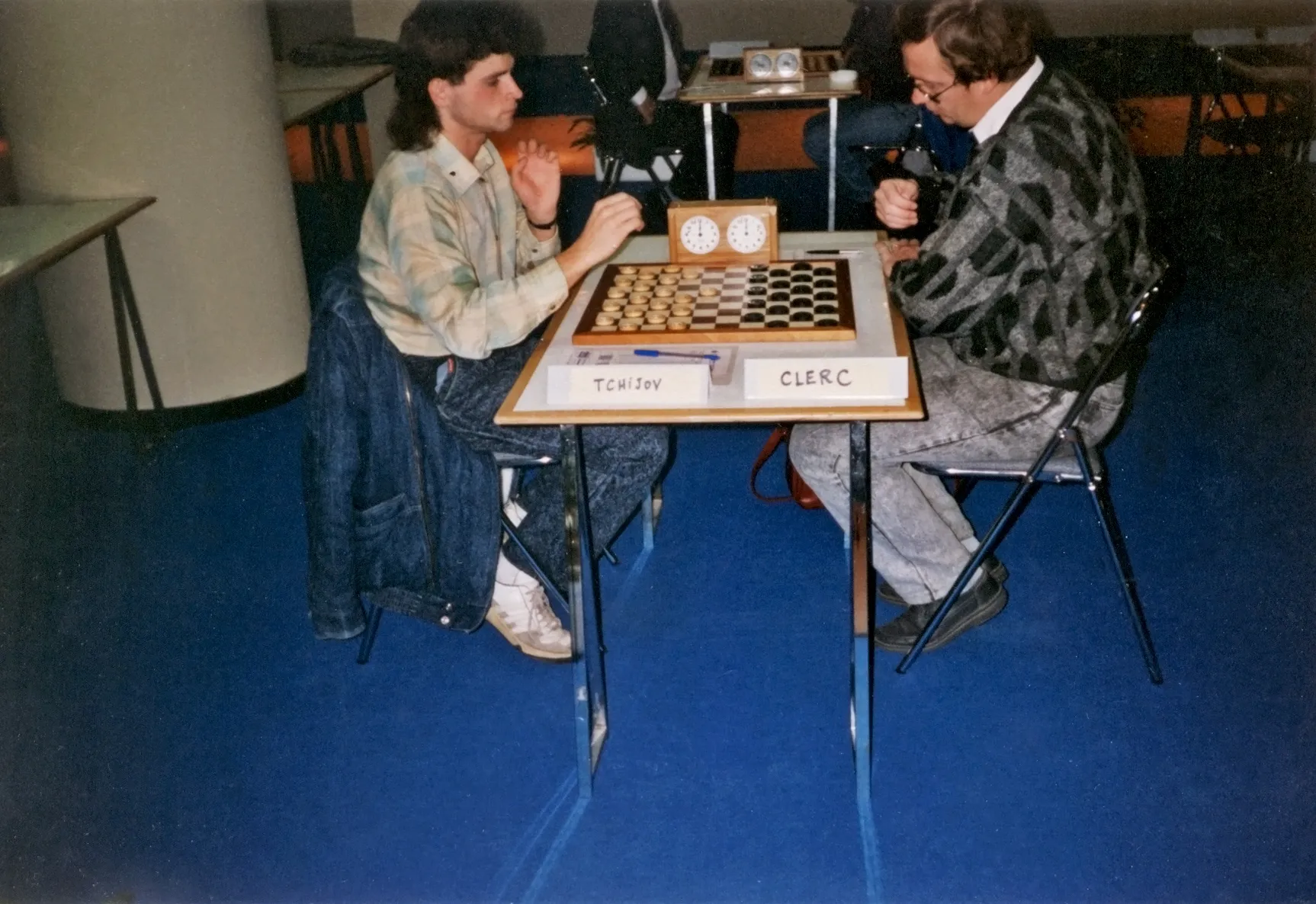The game I want to analyse was played in spring 1989 in Cannes and is historic in more ways than one. At that time, the Netherlands-Soviet Union interland was still played every year, and the Netherlands had never won. The so-called Coupe du Monde, a kind of world championship for continental teams, was held in Cannes. The USSR and the Netherlands were considered continents. The first edition of that tournament was held in 1985 in Valkenburg and was won my the USSR (Gantvarg, Korenievski, Shchegolev) followed by the Netherlands (Wiersma, Sijbrands, Clerc), Africa, America and Europe A and B.<br> Until then, the only Dutch team success was in 1978 in Tbilisi at the European Championship for national teams. In that tournament, entering the final round, it was sufficient for the Netherlands to play a draw (3-3). After quick draws by Wiersma (26 moves against Gantvarg) and Sijbrands (24 moves against Mistchanski), I was fortunate that Shchegolev, in a whim of insanity, gave away a piece and lost.
In Cannes, the Netherlands (Clerc, Van der Wal, G.Jansen, Wesselink) led with a score of 100 per cent going into the final round. Of course, the Soviet Union (Chizhov, Gantvarg, Baliakin, Valneris) was on the programme in the final round. The Soviet Union had surprisingly lost a point against America by four draws, Baliakin's against Birnman being miraculous. Also present then were America and Europe A, B and C. Conspicuously absent from Cannes 1989 was Africa. To my knowledge, the Coupe du Monde was never again held.
During my time as national coach (2008-2020), the World Cup of Nations teams was never even held. Unfortunately, Russia was absent from both Turkey (2022) and Portugal in May 2024. The only World Cup national teams I experienced was in 2012 in Lille, but that was a rapid tournament. <br>In that all-decisive final round in Cannes, Jannes van der Wal played a draw against Gantvarg, despite a big advantage. Gérard Jansen defeated Baliakin on the third board. The Huissen native had become European champion in Moscow in 1987 with the fabulous score of 23 out of 13! On the fourth board, Wieger Wesselink played an eventful draw against Valneris.
I want to analyse the game on the first board. My opponent had just become world champion for the first time in Paramaribo in the autumn of 1988.
Turbo Dambase lists 30 games between Chizhov and me. Of those 30 games, 25 ended in a draw. They are not all equally interesting, but there are plenty of games in which the battle was at the cutting edge. Among them are also games with shorter time controls. Of the games with classical time control, we both won two. Chizhov's third victory was with shorter time control. After the 1996 world championship in Ivory Coast, the necessary barrage for the title in the spring of 1997 in Groningen ended in six draws, after which a game with shorter time control brought the decision. }
